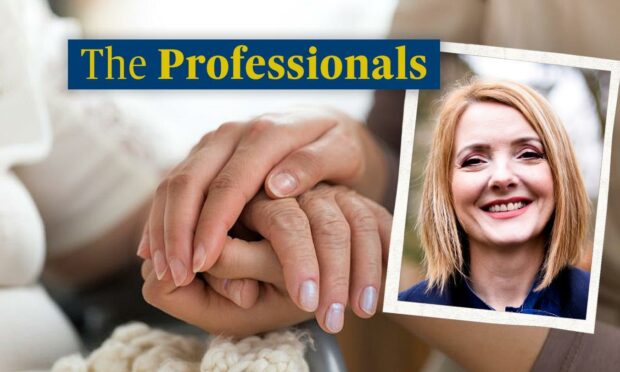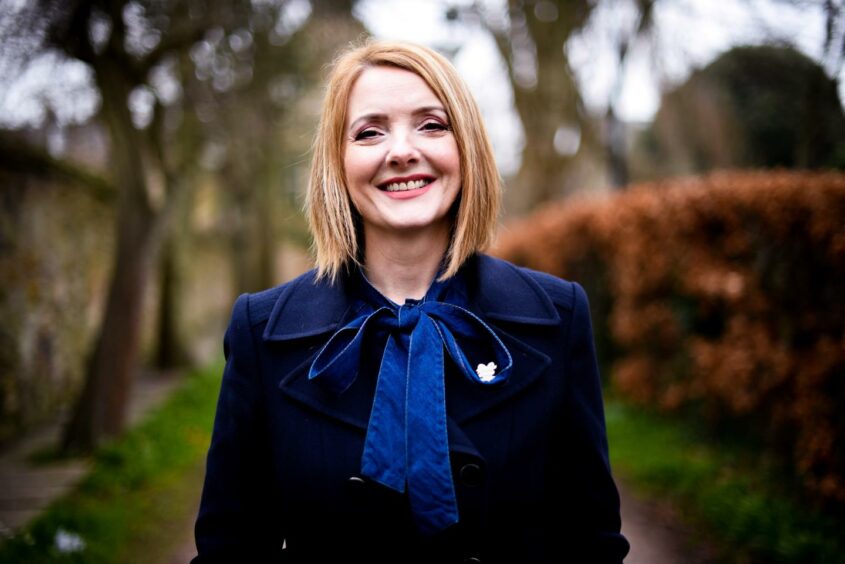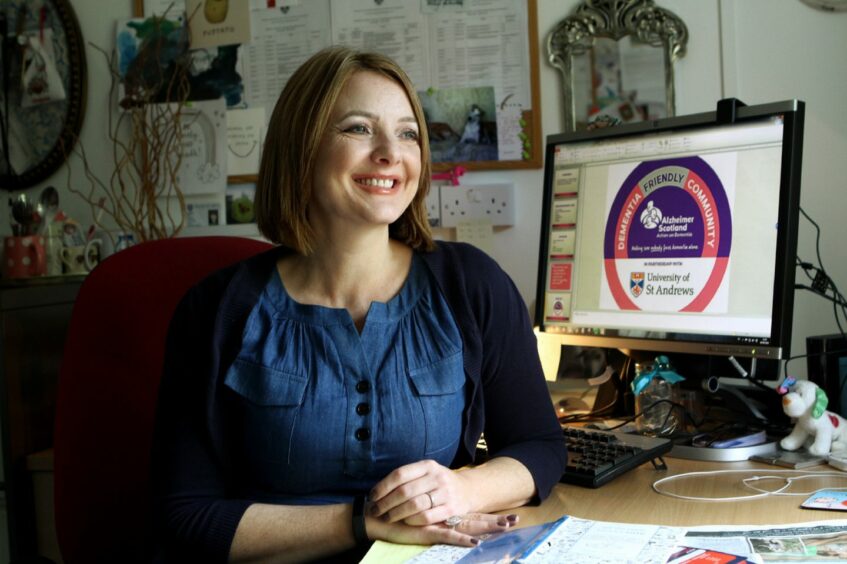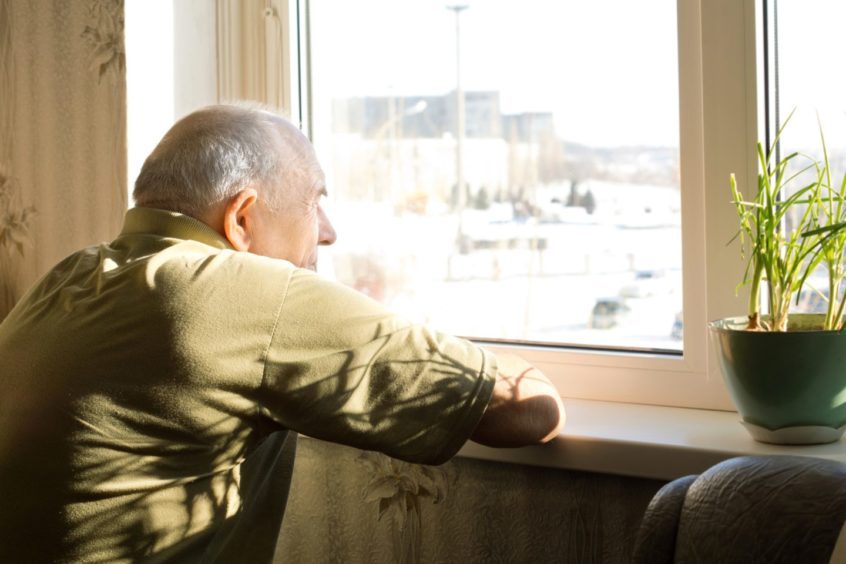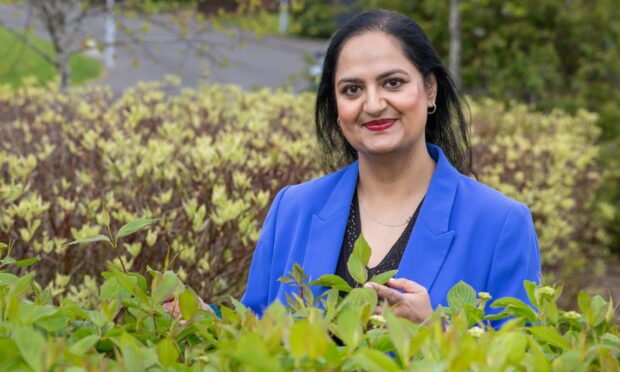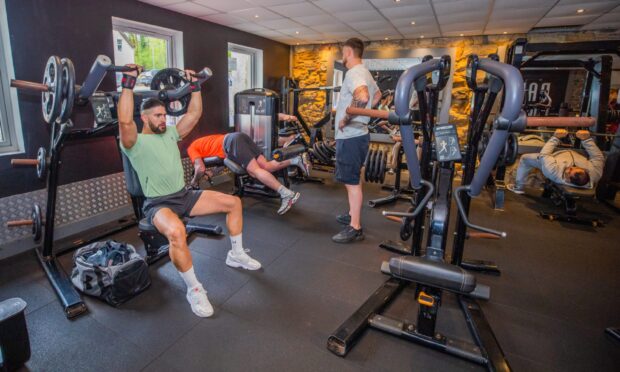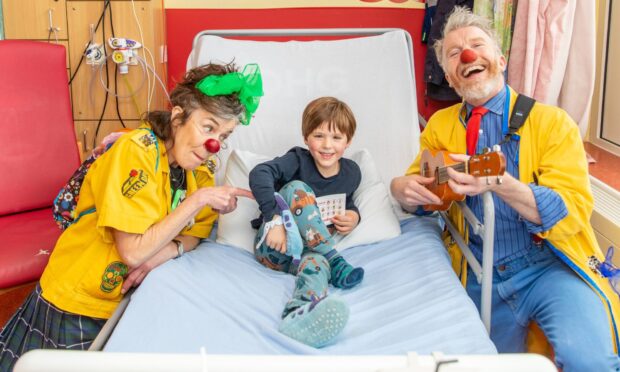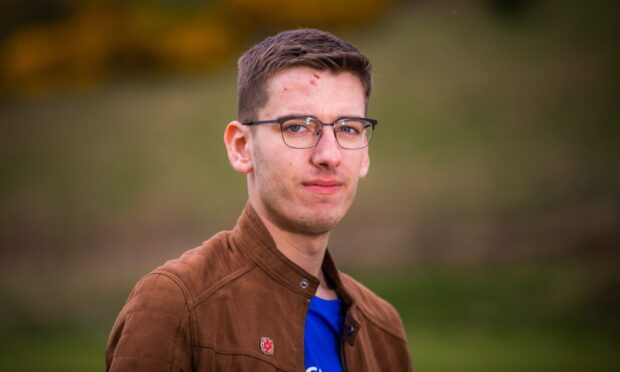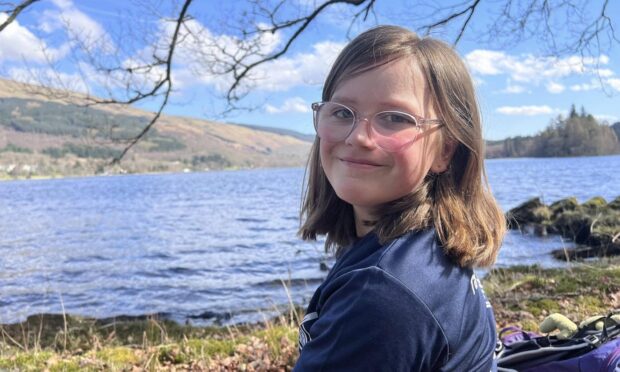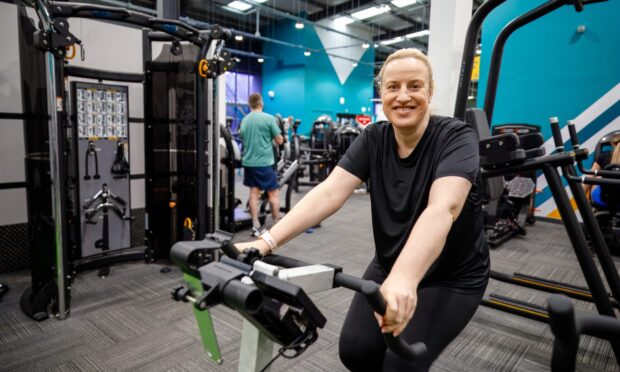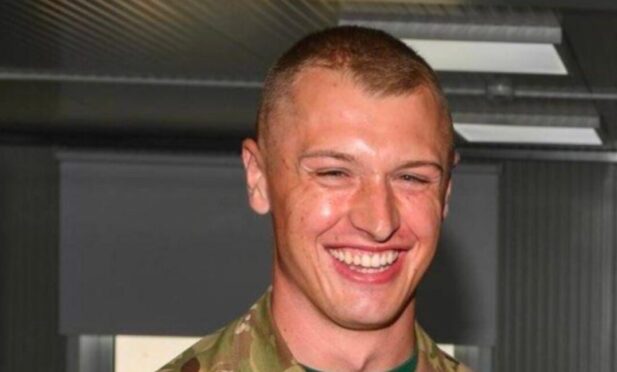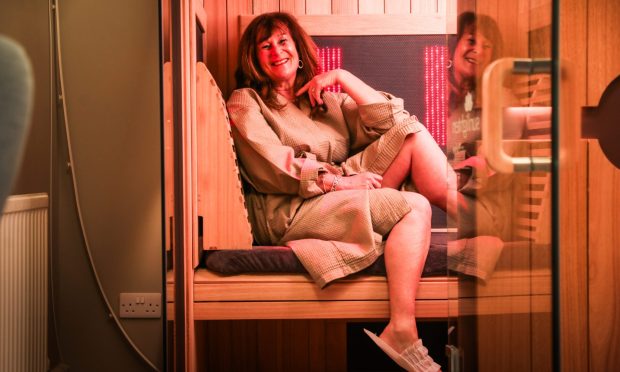It all started with the hokey cokey.
When Dr Maggie Ellis was volunteering at Whitfield Parish Church she had a lightbulb moment.
She watched older Dundonians living with dementia participate, have fun and be able to communicate.
And it sparked an interest that would lead her to be an expert in her field.
Her life’s work has changed the way professionals and families of those affected by dementia communicate with those living with the condition.
And it also earned her an MBE.
And here, we talk to her about how communication with our loved ones is never lost, despite them having advanced stages of the condition.
‘I loved it right away’
Dr Ellis knew her career was in dementia research the day she volunteered as an undergraduate with Alzheimer’s Scotland.
It was at a day care service in Whitfield and she says: “I just loved it right away.
“I loved interacting with the people and the family members.
“I’d never met a person with dementia so I’d wondered what it was going to be like.
“At first hid myself in the kitchen making the tea and toast.
“But I was encouraged to go into the day room and join in.
“Everyone was standing in a circle doing the hokey cokey.
“At that moment, I joined in and thought, ‘I can do this. This is great fun’.”
And because of that, an interest in helping people connect and communicate to find a way to express themselves began.
“It became clear to me communication is a problem for a lot of people with dementia. But that there’s a lot we can do to engage and have meaningful interaction.
“That experience has been invaluable.
“I wouldn’t be doing what I’m doing had I not volunteered.”
Dr Ellis’s research, with collaborator, Professor Arlene Astell of the University of Reading is called ‘Adaptive Interaction’.
It focuses on developing meaningful ways to communicate with those who have lost speech and understanding of verbal communication.
Dr Ellis also set up Dementia Friendly St Andrews in 2016 with an emphasis on taking research into practical use to provide help to those living with dementia.
‘It gives me hope’
“I’m most proud of the Adaptive Interaction research,” she says.
“It uses the same principles as an intervention that helps us to communicate with those who have profound and multiple learning disabilities.
“Hearing people I’ve trained say they’ve tried things and it worked is amazing.
“It gives me hope for the future.”
How does it work?
It’s about training professionals and family members to see past the barriers and find ways of reaching individuals living with advanced dementia.
“I spend a lot of time explaining the background of the approach to those we train and what it’s based on.
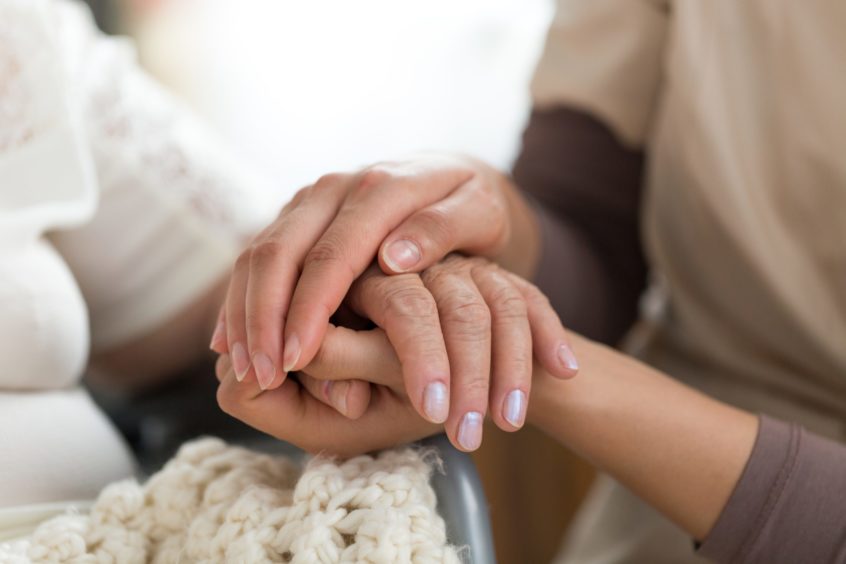
“We’re honest about what will no longer be possible, but also the different forms of communication that will be.
“Yes, conversation with your loved one may be gone.
“But connection on another level will be possible.”
Picking up on cues to communicate
By understanding and picking up on different cues from the person with dementia, people can learn how they are attempting communication, she continues.
“We are hard-wired to communicate and engage with each other.
“From the minute we’re born we communicate, when a baby cries for example.
“What is lost with someone who has dementia is our ability to understand the communicative actions they retain.
"Sometimes my papa doesn’t know who I am, but he knows that he loves me. He calls me his wee darling and he says I’m the best in the world."
Lucy, 10, has been using her creativity to fundraise for AlzScot & raise awareness of dementia at the same time ➡️ https://t.co/OdYqKjWpgq pic.twitter.com/oSDPfAnWqP
— Alzheimer Scotland (@alzscot) March 21, 2022
“It’s sounds like a simple idea, but it’s not easy for us to do.
“And there are several reasons for that, including that we don’t want to be seen to infantilise people with dementia.
Advice for families
“I’m not saying that people with advanced dementia are the same as babies.
“What I always stress is that when people get to that advanced stage, they have a similar set of communication skills to those they came into the world with.
“We have to speak to those skills. The more advanced skills are gone.
“As such, we communicate with them using their own ‘language’.
“My main piece of advice is to attend very carefully to the sounds and movements made by the person living with dementia.
“These may represent a bid to communicate with others using retained skills.”
Future plans
Dr Ellis’s research and determination to help others continues with two new projects.
“In July we start training care workers and family members in four care homes to use Adaptive Interaction.
“I’m also hoping to set up a Masters course at St Andrew’s University on Therapeutic Communication in Dementia.”
And there’s one thing that drives her, she says.
“When I retire, the one thing I’ll take with me is that I helped to change minds about what is possible in terms of communicating with people with dementia.
“And therefore, helped family members to communicate with their loved ones again.”
